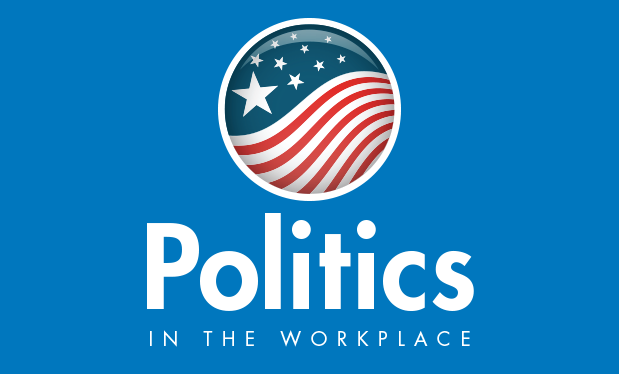It is well-understood roofing contrators' rights, remedies and obligations typically are driven by contracts. Construction contracts come in several forms: a roofing contractor might execute a subcontract provided by a general contractor; a building owner might have a maintenance agreement he or she uses for roof system repair work; or a roofing contractor might provide its own invoice with terms and conditions to a homeowner for residential work.
If a dispute arises during a project, it is appropriate to first determine what, if anything, the contract says about the issue(s) at hand. But what if a dispute involves what constitutes the contract itself? You should carefully review any invoices or documents received in connection with a construction project because these documents may contain terms and conditions that ultimately bind you and/or your company. A 2013 U.S. District Court decision from the Middle District of Florida, Kalzip, Inc. v. TL Hill Construction, LLC, 2003 WL 1909604, describes how these terms and conditions may prove to be unfavorable.
Background
The case concerns a roofing contractor, a roofing materials manufacturer, and a dispute involving the terms and conditions of their contract. Both parties acknowledge a contract existed, but the contractor and manufacturer disagreed about what the manufacturer's terms were under the contract.
On Feb. 8, 2010, roofing contractor TL Hill Construction LLC, Sarasota, Fla., entered into a subcontract with general contractor Haskell, Jacksonville, Fla., to install metal siding, roofing and sunshades for the construction of a Rolls-Royce manufacturing facility in Prince George, Va. In anticipation of the subcontract, TL Hill Construction entered into a contract with Kalzip Inc., Valparaiso, Ind., where Kalzip agreed to manufacture and supply aluminum roof panels and other related materials to be incorporated into the project.
On Feb. 4, 2010, Kalzip emailed TL Hill Construction several documents for review and approval. The documents included a material purchase order and quote, Kalzip's credit application, and Kalzip's "General Terms and Conditions of Sale." A cover letter was included with the email stating all goods and services provided by Kalzip were supplied subject to Kalzip's terms and conditions. Kalzip's terms and conditions contained a provision stating buyers of Kalzip roofing materials waived all rights to consequential damages in connection with the sale of its roofing panels and related materials.
The relevant portion of the consequential damages waiver stated: "[Kalzip's] liability to [TL Hill] … shall be limited to an amount equal to the purchase price of the goods paid by [TL Hill] to [Kalzip] less the fair market value of the goods in [TL Hill's] possession with respect to which such liability is claimed, or, when appropriate and at the option of [Kalzip], replacement of the goods or replacement and pick up of the goods. IN NO EVENT SHALL [KALZIP] BE LIABLE FOR CONSEQUENTIAL OR INCIDENTAL DAMAGES, LOSSES, OR EXPENSES ARISING OUT OF THIS TRANSACTION."
On Feb. 5, 2010, TL Hill Construction executed and returned a copy of the credit application and the terms and conditions to Kalzip. On the credit application, an officer for TL Hill Construction acknowledged TL Hill Construction was aware the terms and conditions governed the sale of goods between Kalzip and TL Hill Construction. On the same day, TL Hill Construction also sent Kalzip a letter indicating it planned to use Kalzip as a material supplier for the roofing portion of the Rolls-Royce project. The letter authorized Kalzip to begin preparing any shop drawings and submittals required for the project and referenced a purchase order for the work.
On Feb. 7, 2010, TL Hill Construction accepted Kalzip's proposal, issued a purchase order, and began ordering aluminum roofing and related materials from Kalzip for the project. Throughout the entire sourcing and procurement process, TL Hill Construction never objected to Kalzip's terms and conditions.
The dispute
TL Hill Construction argued Kalzip failed to provide the proper bearing plates and clips in accordance with the project plans and specifications. Further, TL Hill Construction believed its Feb. 5, 2010, letter communicating its intent to use Kalzip as a supplier required Kalzip to provide roofing materials complying with the shop drawings and submittals for the project as a condition precedent. (A condition precedent is an event that must occur before another contractual duty is triggered. In this case, TL Hill Construction argued Kalzip was required to provide roofing materials in conformance with shop drawings and submittals as a condition precedent to TL Hill Construction's contractual duty to pay Kalzip for goods received.)
Because Kalzip did not provide bearing plates and clips in accordance with shop drawings, TL Hill Construction argued it was excused from its obligation to pay Kalzip for roofing materials under the contract. As a result, TL Hill Construction stopped paying Kalzip for its goods, and an amount of about $223,000 remained outstanding.
TL Hill Construction also argued that because Kalzip failed to provide the proper bearing plates and clips, TL Hill Construction incurred more than $930,000 in costs to repair its roofing work because of Kalzip's noncompliant materials. TL Hill Construction also sought lost profits from Kalzip because Haskell allegedly rescinded several previously awarded projects from TL Hill Construction as a result of the dispute with Kalzip on the Rolls-Royce project.
Kalzip argued the shop drawings and submittals were not a condition precedent to the contract. Kalzip also argued TL Hill Construction's execution of Kalzip's credit application and terms and conditions indicated TL Hill Construction waived any right to bring an action for consequential damages and, therefore, TL Hill Construction could not maintain any action for the projects Haskell withdrew. (Consequential damages are losses and expenses that are not directly caused by a contractor's wrongful action but instead are claimed to be a "consequence" of the action. Consequential damages often are described as "big money" damages because damages often exceed the actual value of a contractor's conduct. Examples of consequential damages include lost business revenues, loss of use and lost profits.) Kalzip also sought recovery of the outstanding balance of $223,000 from TL Hill Construction.
The contract
To settle the dispute, the district court first had to determine the contract terms between TL Hill Construction and Kalzip. Contracts for the sale of goods are governed by the Uniform Commercial Code (UCC). According to the UCC, a contract for the sale of goods can be made in any manner sufficient to show an agreement existed between the parties. Section 2-207 of the UCC states (as it relates to transactions between commercial businesses) the parties to a transaction can enforce an agreement even if there are differences between the written offer and written acceptance of the agreement.
Moreover, a "definite and seasonable" expression of acceptance or a written confirmation (such as the letter of intent sent by TL Hill Construction) constitutes an acceptance of an offer unless the acceptance was clearly conditioned upon the acceptance of additional or different terms. If the acceptance is communicated without notice of any additional or conflicting terms, the party accepting the offer takes the original terms as is.
With these principles in mind, the district court reviewed the facts and ultimately determined Kalzip's terms and conditions were the terms that governed the agreement between TL Hill Construction and Kalzip. In its decision, the court found Kalzip's terms and conditions were the only terms exchanged by the parties. Instead of objecting to Kalzip's terms or proposing differing terms, TL Hill Construction signed Kalzip's credit application acknowledging Kalzip's terms. TL Hill Construction also sent a purchase order to Kalzip without objecting to the terms and later accepted deliveries of roofing materials from Kalzip, which were accompanied by Kalzip's invoices that specifically referenced Kalzip's terms and conditions.
Because TL Hill Construction never proposed different terms or communicated its rejection of Kalzip's terms, the district court concluded Kalzip's terms and conditions became the terms governing the agreement between the parties.
Was there a condition precedent?
TL Hill Construction, seeking to avoid liability to Kalzip for payment, argued its letter of intent authorizing Kalzip to proceed with shop drawings made the shop drawings a condition precedent to the contract and TL Hill Construction's obligation to pay for roofing materials conforming to those shop drawings.
TL Hill Construction alleged Kalzip did not satisfy the condition precedent when it failed to provide the proper roofing materials according to the shop drawings. Specifically, TL Hill Construction alleged Kalzip provided bearings and clips that were different from those shown on the shop drawings. As a result, TL Hill Construction claimed it was excused from its obligation to pay Kalzip for the roofing materials delivered.
The district court held that when a party seeks to rely on a condition precedent as an excuse for nonpayment, it must establish both parties intended to create a condition precedent at the time of contract formation. Applying this concept, the court determined TL Hill Construction failed to provide any evidence the delivery of goods conforming with the shop drawings was an express condition precedent to the contract.
The court reviewed TL Hill Construction's letter of intent and determined its language regarding shop drawings created a contractual performance obligation rather than a condition precedent because the shop drawing requirement went "solely to the obligation of the parties to perform" and the "existence of the condition [did] not prevent the formation of a valid contract."
According to the court, only two conditions precedent to the formation of the contract were present: Haskell had to award the roofing subcontract to TL Hill Construction and Kalzip's shop drawings had to be approved by Haskell. Because there was no dispute TL Hill Construction was awarded the subcontract and Haskell approved the shop drawings, all conditions precedent to the formation of the contract had been satisfied. By contrast, the delivery by Kalzip of goods conforming to the shop drawings was not a condition precedent because it spoke to Kalzip's performance related to the project and not the formation of the contract.
Further, even if delivery of conforming goods was found to be a condition precedent, the court held TL Hill Construction waived the condition precedent when it accepted the allegedly nonconforming goods. According to UCC Section 2-606(1)(c), a buyer is deemed to have accepted any goods if the buyer engages in "any act inconsistent with the seller's ownership." This applies even if the buyer claims he or she verbally rejected the goods at issue.
Applying UCC principles, the court determined TL Hill Construction accepted the roofing materials when it incorporated the materials into the project. Although TL Hill Construction argued it communicated to Kalzip that the materials were nonconforming, the court concluded the materials were deemed accepted under the UCC because incorporating the materials within the project was inconsistent with Kalzip's interest in the roofing materials.
Regarding the issue of a condition precedent, the court ultimately concluded delivery of roofing materials was not a condition precedent to the contract. As a result, the court concluded TL Hill Construction could not accept Kalzip's roofing materials and then rely on their alleged nonconformity with the shop drawings as an excuse for nonpayment. Instead, the court determined TL Hill Construction would be obligated to pay for the materials consumed but TL Hill Construction would be allowed to bring a breach of contract action against Kalzip for its failure to provide the proper materials.
The importance of testimony
As part of its dispute, Kalzip alleged TL Hill Construction breached the contract by failing to pay for the roofing materials. TL Hill Construction, in its defense, argued Kalzip provided roofing materials for the project that were inadequate. To prove this, TL Hill Construction had to establish the roofing materials contained a defect and the defect was the cause of the problems on the roof necessitating repairs by TL Hill Construction.
To support its contention, TL Hill Construction tried to show the materials deviated from the shop drawings. However, the court held TL Hill Construction needed expert witness testimony to support its defense. The court pointed out the reasons behind the roof's mechanical failure were beyond the scope of knowledge for the average person and TL Hill Construction's speculation about the roof's failure was not enough to establish a defect in the roofing materials.
Without any credible expert witness testimony, the court determined TL Hill Construction failed to provide any credible defense to Kalzip's breach of contract action for payment. Moreover, the court also held TL Hill Construction could not maintain its actions for repair costs and lost profits because it lacked the expert witness testimony to show Kalzip's roofing materials were defective.
Consequential damages
The court also held that even if expert witness testimony was not necessary to prove the roofing materials were defective, TL Hill Construction could not recover its repair costs or lost profits because those damages were consequential or incidental damages and recovery of these damages was expressly prohibited under Kalzip's terms and conditions.
Under the UCC, parties to a contract can limit or exclude liability for consequential damages unless a party shows the limitation is unconscionable. A contract provision may be deemed unconscionable if it is found to be so unfair to a party that a reasonably informed person would not agree to it. Unconscionability might be found in situations where one party clearly has superior bargaining power over the other. However, courts also recognize parties have the freedom to contract with one another as they please and, therefore, rarely make determinations that contract provisions are unconscionable.
The court determined TL Hill Construction failed to provide any evidence that the consequential damages waiver was unconscionable and TL Hill Construction was prohibited by contract from seeking recovery for its damages or lost profits.
The ruling
After a thorough review of the facts, the court concluded TL Hill Construction and Kalzip entered into a contract where Kalzip agreed to supply TL Hill Construction with roofing materials subject to Kalzip's terms and conditions.
The court also concluded delivery of roofing materials in conformance with the shop drawings was not a condition precedent to the contract and, therefore, TL Hill Construction could not rely on any alleged defects as an excuse for nonpayment.
Lastly, the court concluded TL Hill Construction could not maintain any breach of contract action against Kalzip because it waived any rights to recover consequential damages and failed to provide expert witness testimony to prove Kalzip's roofing materials caused the roof to fail. Accordingly, the court ordered TL Hill Construction to pay Kalzip the outstanding balance of $223,000 for the roofing materials supplied and TL Hill Construction's claims for repair costs and lost profits were denied.
Lessons learned
You should carefully review all purchase orders, credit applications and invoices from subcontractors and suppliers as these documents may contain terms and conditions you might find unacceptable. Be sure to work with subcontractors and suppliers so contract language is mutually acceptable to both parties.
Also, think carefully before agreeing to contract provisions that waive your right to recover damages, such as a waiver of consequential damages. As in the Kalzip case, doing so might prevent you from recovering damages to which you might otherwise be entitled. I strongly encourage you to use your own forms whenever possible when contracting with other parties; a construction attorney can assist with the drafting of construction documents and forms with terms and conditions that are favorable.
William E. Burnett is an attorney with Atlanta-based law firm Hendrick, Phillips, Salzman & Flatt.
For articles related to this topic, see:
"The devil is in the details," May 2014 issue
"What's the intention?" May 2012 issue
"What does your contract mean?" February 2006 issue
"Precedents and contract provisions," February 2004 issue



